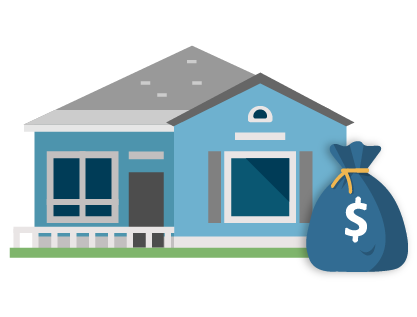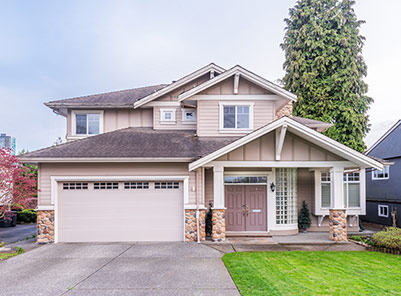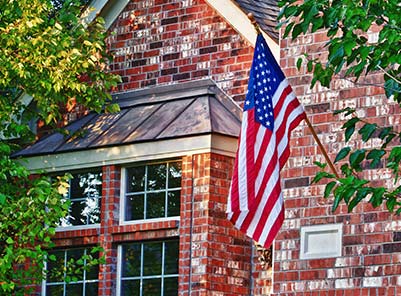Section 1.3
An Introduction to Down Payments
One of the most intimidating parts of becoming a first-time home buyer is being able to save up enough money to put a down payment on a home.
Why are down payments such an integral part of the home loan process, and what purpose do they serve?
We'll discuss the answers to these questions, and more, below.

What Are Down Payments?
In a mortgage, a down payment is the money you bring to up front to cover a portion of a home's cost.
To explain it with just a little bit more depth, when you buy a home, most of the money used to purchase it is financed through a lender, simply because most people don't have hundreds of thousands of dollars just sitting around.
However, a down payment is cash you've saved up to help pay for the home, which reduces the amount a lender needs to let you borrow.
What Loan Programs Have Down Payment Requirements?
There are four main loan programs:

Conventional loans
FHA loans
USDA loans
VA loans

Down Payments on Conventional Loans
One of the common down payment myths we hear is that you need 20% if you want to buy a home. This myth is thanks to conventional loans because if you do make a 20% down payment, you don't have to pay mortgage insurance, which is an extra monthly cost.
However, like we said, this is a myth and even with conventional loans, you don't have to make a 20% downpayment. In fact, it's possible to get a conventional loan with as little as 3% down. However, such a small down payment isn't the norm. Instead, a 10% down payment on a conventional loan is a little more standard.

Down Payments on FHA Loans
FHA loans can have down payments as low as 3.5%, if your credit score is high enough. However, if your credit score is on the low end of the allowed range, you will have to make a 10% down payment.

$0 Down Payments on USDA & VA Loans
As we mentioned before, both USDA and VA home loans don't require a down payment. This is possible because they are both programs that are backed by a government agency: the US Department of Agriculture and the Department of Veterans Affairs, respectively.
This backing means more than just having their name on the loan type. For both USDA and VA loans, their backing agency actually guarantees a portion of each loan amount.
By guaranteeing a loan, these agencies are agreeing to cover part of the lender's losses if you (or any other borrower) defaults on the mortgage. In this way, the guarantee basically serves the same purpose as a down payment.
That being said, one difference between these two loan types is that VA loans don't require any mortgage insurance, ever, even at the $0 down payment amount. USDA loans, on the other hand, require a small 1% fee up front, as well as an annual 0.35% annual fee for the life of the loan.
Should I Put Money Down, Even If It's Not Required?
With USDA and VA loans not requiring a down payment, we sometimes get asked if it's still a good idea to put some money down.
The truth is, it depends.
USDA Loans
- On a USDA loan, one benefit of putting some money down, even though you don't have to, is that it can help you get a lower interest rate.
VA Loans
- For VA loans, a down payment can get you a lower funding fee (which will talk more about in Section 2.9 of this Beginner's Guide), but only at the 5% and 10% down payment amounts.
Both USDA & VA Loans
- For both USDA and VA loans, a down payment will always reduce the amount of money you're financing from a lender, which means you'll experience savings on both closing costs and interest payments.
Have More Questions about Down Payments? Let Us Know!
Hopefully you now have a better understanding of down payments, including why they exist, why they matter, and how they differ between the various home loan programs.
However, if you still have some questions, we'd be happy to answer them for you. Just give us a call for a no-obligation conversation about whatever it is you want to know regarding down payments or other VA loan topics.
 Text Us
Text Us Call Us
Call Us
